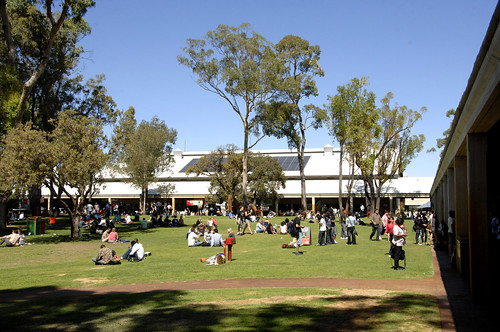 |
| Perspective Squarecase by Erik Johansson ↬ Deviantart |
We get a lot of questions around Advanced Standing and the difference between credits and exemptions and we know it can seem a little confusing at first, deciphering what they all mean and how they apply to you.
Below we cover some common questions we get asked. Advanced Standing is assessed on an individual basis and each student’s situation is slightly different. Students often aren’t aware of what gets covered in Advanced Standing or realise that they don’t have the right qualifications to apply so understanding the differences can save you time and the hassle of going through the process for no reason, so read on…
Q: What is Advanced Standing?
Advanced Standing is the collective term used by most universities to describe the ways students can use some of their previous learning experience and put it toward their degree. Often also called credit transfer, exemption or simply just credit.
If you want to apply for credits or exemptions make sure you tick the Advanced Standing check box when you are filling out the application form. You will need to provide unit outlines from previous study.
If you indicate on your uni application that you want to be assessed for Advanced Standing, our Accreditation Officers will review it once you have been offered and have accepted a place at Murdoch University.
Q: What’s the difference between a credit and an exemption?
A credit is when the uni recognises that you have already completed some requirements of your course so it reduces the points you need to finish your degree. So, instead of the usual 72 points required to complete most Bachelor degrees, you may only need to study enough units to gain 60 points, for example. Check the Course Structure of your course in the Handbook to see how many points each unit is worth.
You would still have to complete the required or core units in your course.
An exemption is when you have completed the equivalent of a unit in your previous studies so you don’t have to do this unit again in your Murdoch degree. An exemption can be awarded with or without credit.
The 8 remaining questions:
Need more info?






